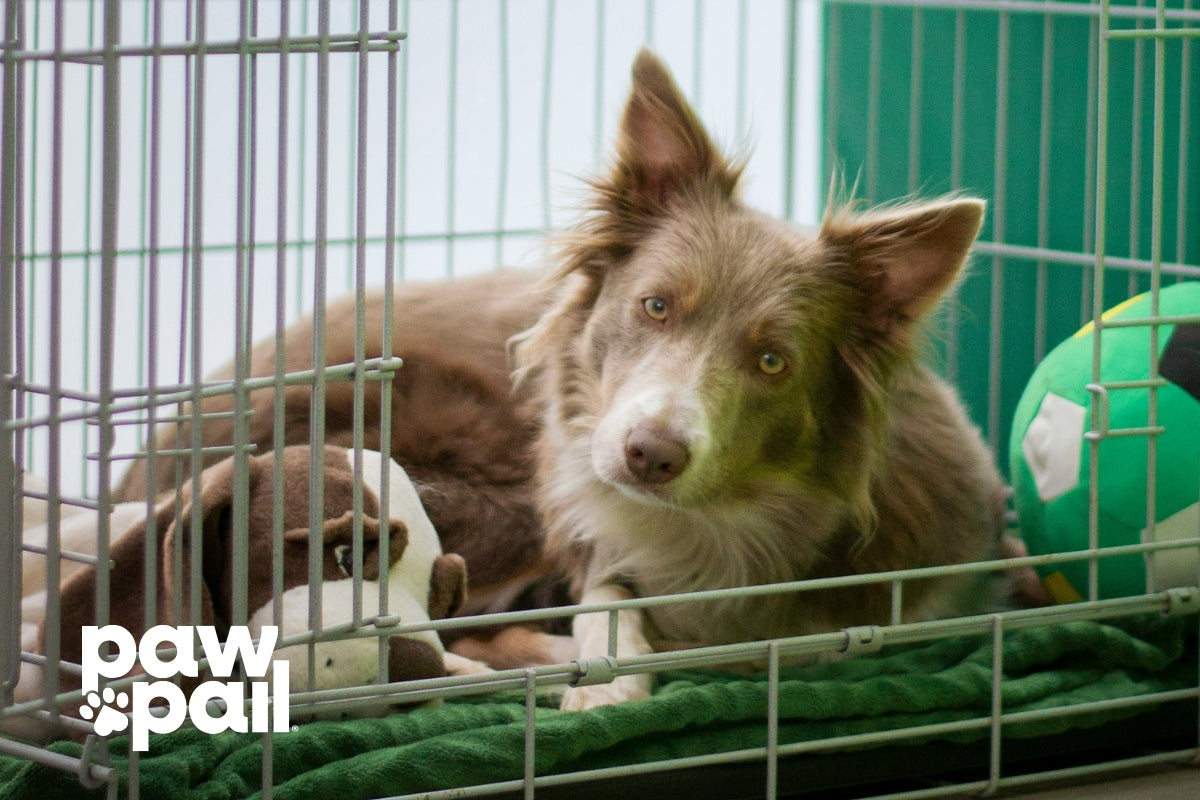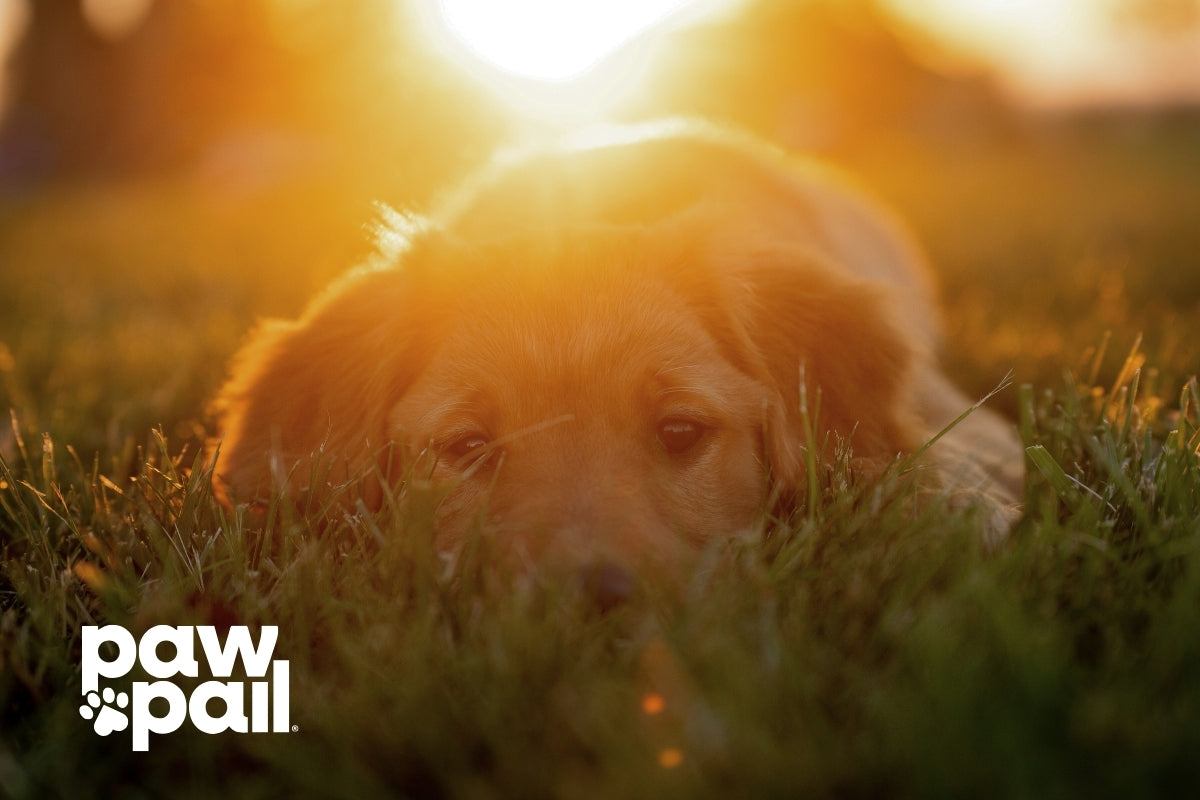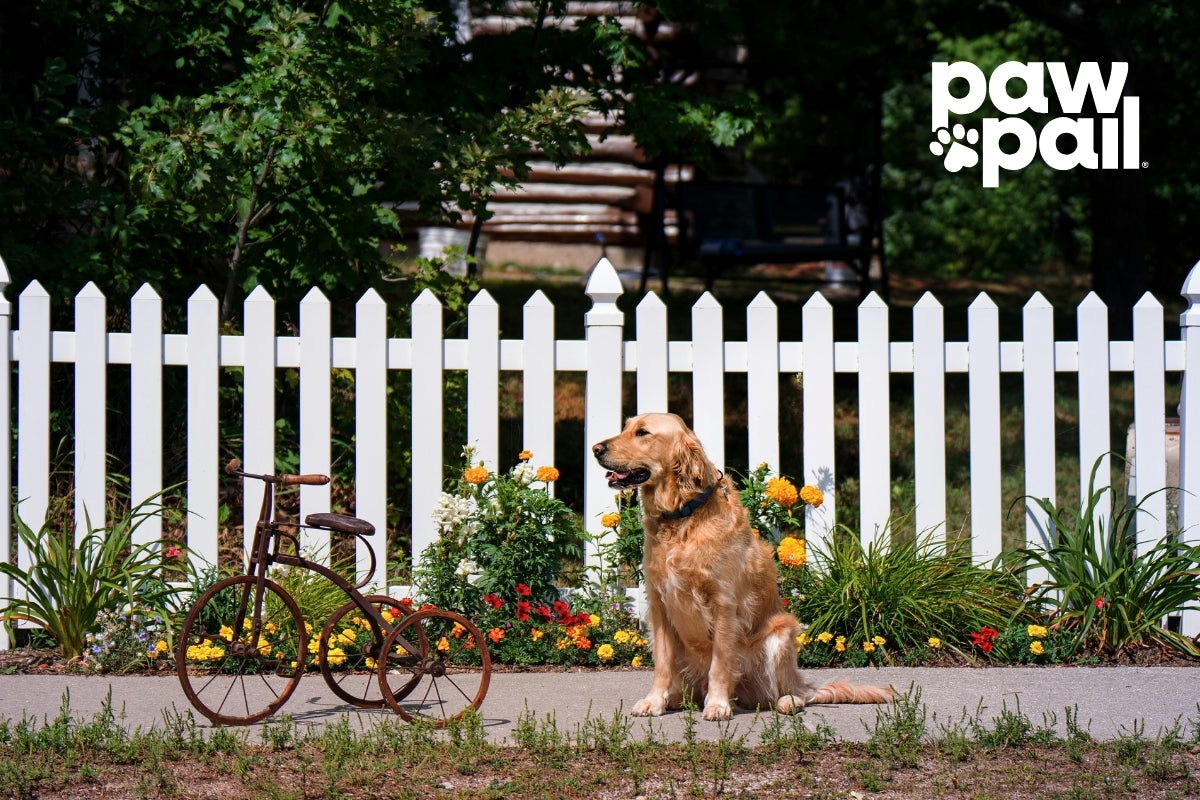Discovering feces in your dog’s crate overnight is both frustrating and worrying, especially if your dog was previously house-trained. This sudden regression often signals an underlying issue—medical, behavioral, or environmental—that needs addressing.
Rule Out Medical Causes
A sudden loss of bowel control is rarely purely behavioral. Prioritize a veterinary visit to eliminate health concerns.
Gastrointestinal Distress
Digestive upset is a common culprit. Dietary changes—even switching treats or table scraps—can trigger diarrhea or urgency. Food intolerances (e.g., to grains, proteins, or additives) may develop over time, while parasites like roundworms, giardia, or coccidia irritate the intestines. More severe conditions like inflammatory bowel disease (IBD), colitis, or infections require prompt diagnosis.
In that case, provide a stool sample for parasite testing to your vet and discuss any recent potential diet changes with them. You should ask about giving your pup a bland diet (e.g., boiled chicken and rice) to reset their stomach.
Age-Related Incontinence
Senior dogs often struggle with weakened anal sphincter muscles or cognitive decline (similar to dementia). Arthritis can also make it harder for them to signal that they need to go out.
If you have a senior dog, ask your vet about medications that would improve your furry friend’s sphincter tone, such as phenylpropanolamine. You could also adjust to their new schedule by doing something like adding a late-night potty break and limiting their water intake to two hours before bedtime. Another thing to do is think about using dog diapers or washable crate pads for easier cleanup.
Systemic Illnesses and Medications
Conditions like diabetes, kidney disease, or hypothyroidism can increase thirst and urination, putting pressure on the bowels. Similarly, medications like steroids or antibiotics may cause diarrhea as a side effect.
Review all medications/supplements with your vet and request bloodwork or urinalysis to check for metabolic issues.
Behavioral and Environmental Factors
If medical causes are ruled out, evaluate your dog’s routine, crate setup, and stress levels.
Incomplete or Regressed House Training
Dogs don’t always generalize training to all environments. A dog that reliably goes outdoors might not understand the crate’s “den rules,” especially if they were recently adopted or crated for longer periods.
In this case, re-train your furry friend to crate etiquette and feed meals in the crate to reinforce it as a safe space. Use high-value treats (e.g., peanut butter-stuffed Kongs) to create positive associations and gradually increase crate time during the day to rebuild comfort.
Anxiety and Stress
Stress hormones can speed up digestion, leading to accidents. Common triggers include separation anxiety, confinement anxiety, environmental changes like new pets, moving homes, or even loud noises. Common signs of anxiety include whining, pacing, drooling, destructive chewing, or excessive licking.
To help your pup in this situation, leave the crate door open during the day and reward their calm behavior near it. Introduce calming aids such as pheromone diffusers, anxiety wraps, or vet-approved CBD oil. For severe anxiety, a professional behaviorist can design a counter-conditioning plan.
Crate Size and Setup
Dogs instinctively avoid soiling their sleeping area—if the crate is properly sized. An oversized crate lets them designate a “bathroom corner,” while cramped spaces cause stress. Your dog should be able to stand, turn, and lie down comfortably in their crate.
You can use a divider panel in wire crates to reduce space. And avoid initially putting bedding inside the crate if your dog soils soft materials.
Disrupted Routine
Dogs thrive on consistency. Changes in feeding times, walk schedules, or your work hours can confuse their internal clock. For example, a later dinner might mean a full bowel at 3 a.m.
This is why it’s best to feed meals at the same time daily and take your dog out for a potty break immediately after meals and right before bedtime. You should also limit evening playtime to avoid stimulating digestion.
Resolving Nighttime Accidents
Optimize the Evening Routine
Feed dinner 3–4 hours before bedtime to allow full digestion and then take them on a 15-minute walk to help stimulate their bowel movements. At the end of the day, take your dog out right before crating. Wait until they fully empty their bowels—no rushing!
Crate Management
Clean accidents immediately by using enzymatic cleaners to eliminate odors that might attract repeat soiling. It’s also best to temporarily remove any bedding in the crate and replace it with a washable mat or towel until accidents stop.
Reinforce Training
Praise and treat your dog enthusiastically when they poop outside. Make sure you always avoid punishment. Yelling or rubbing your dog’s nose in feces increases their anxiety. Stay calm and focus on positive reinforcement.
Monitor Progress
Keep a log of any accidents, including the time of the accident and the stool consistency, as well as the feeding and walking times during the day. You should also keep track of any potential stressors, such as storms or visitors, as all this can help you identify patterns and adjust your approach.
When to Seek Professional Help
You should talk to a vet if the issues continue for over two weeks despite interventions. In the case that your furry friend has severe anxiety, consult a certified dog behaviorist (IAABC or CCPDT). Revisit your vet if new symptoms (vomiting, lethargy, blood in stool) arise.
Say Goodbye to Midnight Messes with Paw Pail
Dealing with a dog suddenly pooping in their crate at night can be stressful. While addressing the underlying medical or behavioral reasons is crucial, managing the cleanup and odors effectively is equally important. Paw Pail's innovative, odor-controlling pet waste disposal system offers a convenient and hygienic solution for handling those unexpected nighttime accidents, and keeping your home fresh and clean.



